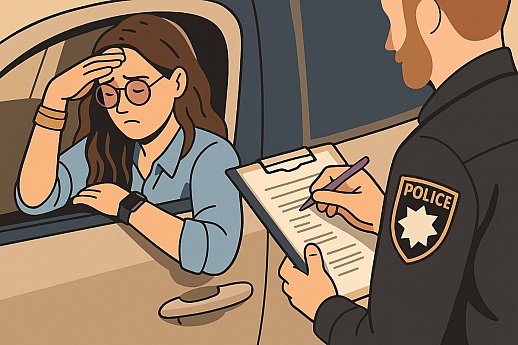Driving Without Car Insurance: Consequences and Penalties
Driving without car insurance is a risk to yourself, your vehicle, other drivers, passengers, and pedestrians on the road. Not to mention, driving without insurance is illegal, and the consequences can be severe if caught.
The penalties for driving without insurance can have profound financial and legal implications, from fines and license suspension to criminal charges. In this blog, we will discuss the consequences and penalties of driving without car insurance and why it is essential to make sure you have proper coverage before you hit the road.
Is It Illegal to Drive Without Insurance?
Car insurance is a legal requirement in every state except New Hampshire. Minimum liability insurance coverage is mandatory to protect oneself and others on the road. However, many drivers still choose to drive without insurance, exposing themselves and others to potential consequences and penalties knowingly or unknowingly.
What Happens If You Are Caught Without Car Insurance?
Driving a car without insurance can result in severe consequences, both legally and financially. The penalties for driving without insurance can vary depending on the state where and the circumstances surrounding the violation.
Driving Without Proof of Insurance
You may receive a citation or a fine if you are caught driving without proof of insurance. The fine amount varies by state but can range from $100 to $500. However, repeat offenses can result in more significant fines, often up to $1,000 or more.
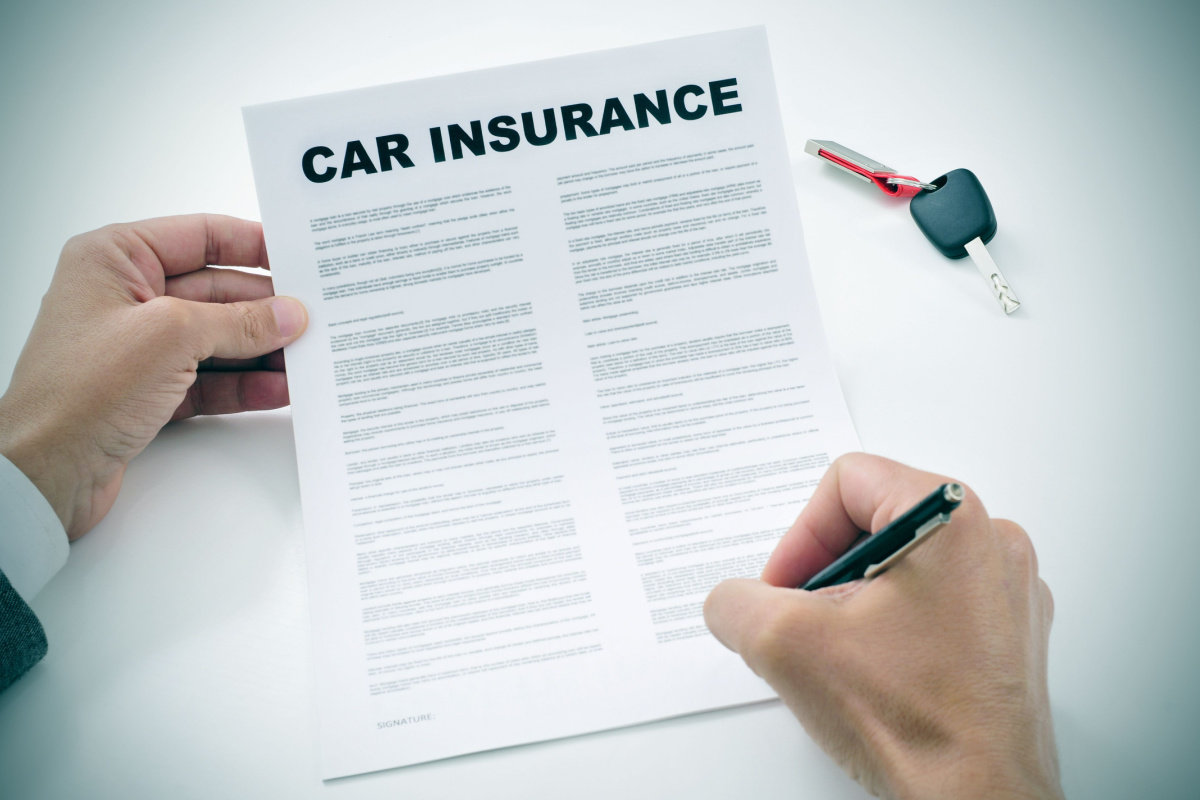
You must provide proof of insurance to the court or the Department of Motor Vehicles (DMV) to avoid further penalties like suspension of your license, revocation of your driver’s license, or even impoundment of the vehicle.
Driving Without Insurance
If you are caught driving without insurance, you may be required to pay fines from $150 to $5,000 and other penalties, such as license suspension or vehicle impoundment. In addition, if you are involved in a car accident while driving without insurance, you may be personally responsible for paying for damages and injuries resulting from the accident, which can be significant.
You may need to file an SR-22 form if you have been convicted of driving without insurance. An SR-22 form is a certificate of financial responsibility required by some U.S. states from drivers who have had their licenses suspended, revoked, or convicted of certain traffic violations. When you file an SR-22, your insurance company will provide proof of financial responsibility to your state's Department of Motor Vehicles (DMV). In addition, this form serves as proof that you have the required liability insurance coverage, which helps to ensure that you can cover the costs of any damages or injuries you may cause while driving.
However, note that not all insurance companies offer SR-22 coverage, and those that do may charge higher premiums than standard coverage. Therefore, it’s essential to shop around and compare auto insurance companies that provide SR-22 coverage and compare rates to find the most affordable option for your situation.
Getting Into an Accident Without Insurance
If you are involved in an accident without insurance, there are several consequences you may face, including:
- Financial Responsibility: If you are at fault for the accident, you will be responsible for paying for any damages or injuries that occur. This can be a substantial financial burden, especially if the damages or injuries are significant.
- Legal Consequences: Driving without insurance is against the law, and if you are caught, you can face legal consequences. You may face fines, license suspension, or even jail time, depending on your state.
- Difficulty Getting Insurance in the Future: It can be challenging to obtain car insurance because insurance companies may view you as a high-risk driver. They may charge you higher premiums or refuse to insure you altogether.
When You Are At-Fault
If you are in an at-fault car accident and do not have auto insurance, you may be held personally liable for the damages you caused in the accident. This means that you may be responsible for paying for the damages out of your pocket, including medical expenses, property damage, and other costs associated with the accident.
If you cannot pay for the damages, the other party may take legal action against you to recover the costs. This could result in wage garnishment, liens against your property, or other legal consequences.
When You Are Not At Fault
If you are not in an at-fault car accident and do not have auto insurance, you may not be held liable for any damages resulting from the accident. However, if the other party involved in the accident has suffered injuries, they may still file a lawsuit against you to recover the costs.
Note that even if you are not found at fault, the fact that you were driving without insurance may still have legal consequences, such as fines, suspension of your driver's license, and even imprisonment.
In addition, if you are not insured and are involved in an accident that is not your fault, you may not have access to the same financial assistance and benefits insured drivers have. For example, you may be unable to claim damages under your insurance policy and may not be eligible for compensation from the at-fault driver's insurance company.
Penalties for Driving Without Insurance
The penalties for driving without auto insurance can be severe and may have long-lasting consequences. That’s why it’s always best to carry auto insurance to protect yourself and others on the road.
The penalties vary depending on the state where the violation occurred. In general, however, the penalties may include the following:
Fines
You may be required to pay a fine for driving without insurance. The amount you pay will depend on the state’s laws and may range from a few hundred to several thousand dollars. For example, if a driver is a first-time offender in Ohio, the fine for driving without insurance can be up to $500. However, if the driver has multiple offenses or has been involved in an accident without insurance, the fine can be as high as $1,000.
License Suspension
Your driver’s license may be suspended or revoked for a period of time. If you are caught driving without insurance. The length will depend on the state’s laws and the specific circumstances of the violation.
In some cases, a driver's license may only be suspended for a short period, such as a few weeks or months. However, in other instances, the license revocation may be more severe, lasting several months or even years.
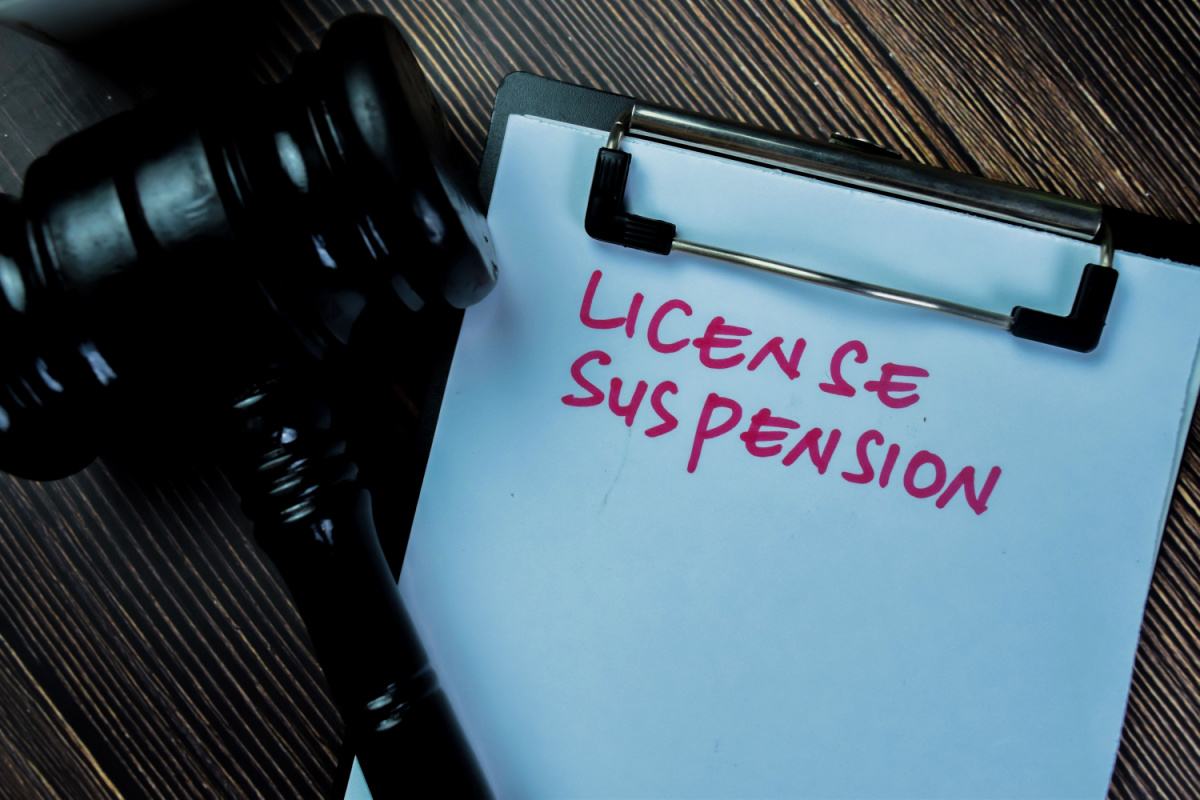
For example, in California, a driver found to be driving without insurance can have their license suspended for up to one year, depending on the number of prior violations. In contrast, in New York, a driver may face a license suspension of up to three years for driving without insurance.
Vehicle Impoundment
Your car may be impounded if you are caught driving without insurance. In some states, the impoundment may last until you can show proof of insurance.
Prison Sentence
In some cases, driving without insurance may result in criminal charges and a prison sentence, especially if you are involved in an accident or have a history of driving without insurance. The length of your sentence will vary based on where you reside.
Financial Responsibilities
If you are caught driving without insurance, you may face financial responsibilities beyond the immediate penalties imposed by the state. One of the most significant financial responsibilities is an increase in your insurance rates.
- Increased Insurance Rates: When you apply for auto insurance, the insurance company will consider a number of factors when determining your rates, including your driving and coverage history of at least six months. For example, if you have a history of driving without insurance or are caught driving without insurance in the past six months, this will be reflected in your insurance rates as it indicates irresponsible behavior.
Insurance companies may sometimes refuse to cover individuals caught driving without insurance. This means you may be forced to seek coverage through a high-risk insurance pool, which can be significantly more expensive than traditional insurance policies. - Car Repairs: The costs associated with car repairs and medical bills can be significant, primarily if the accident resulted in serious injuries or damage to the vehicles involved. Depending on the extent of the damages, you may face tens of thousands of dollars or more in expenses.
If you are unable to pay for these expenses, the other party involved in the accident may bring legal action against you to recoup the costs. This could result in wage garnishment, liens against your property, or other legal consequences. - Medical Bills: If you are involved in an accident and found to be at fault, you may be responsible for paying medical bills out of your pocket, which can be a significant financial burden.
Without proper coverage, you may also lose access to benefits such as short-term disability insurance, which can help replace a portion of your income if your injuries prevent you from working.
Consequences of Driving Without Insurance by State
As it is clear by now, driving without insurance is illegal in most states, and the consequences can vary depending on where the offense occurs. Here are the first-offense consequences when driving without insurance:
| State | Fine | Additional Consequences |
|---|---|---|
| Alabama |
|
|
| Alaska |
|
|
| Arizona |
|
|
| Arkansas |
|
|
| California |
|
|
| Colorado |
|
|
| Connecticut |
|
|
| Delaware |
|
|
| District of Columbia |
|
|
| Florida |
|
|
| Georgia |
|
|
| Hawaii |
|
|
| Idaho |
|
|
| Illinois |
|
|
| Indiana |
|
|
| Iowa |
|
|
| Kansas |
|
|
| Kentucky |
|
|
| Louisiana |
|
|
| Maine |
|
|
| Maryland |
|
|
| Massachusetts |
|
|
| Michigan |
|
|
| Minnesota |
|
|
| Mississippi |
|
|
| Missouri |
|
|
| Montana |
|
|
| Nebraska |
|
|
| Nevada |
|
|
| New Hampshire |
|
|
| New Jersey |
|
|
| New Mexico |
|
|
| New York |
|
|
| North Carolina |
|
|
| North Dakota |
|
|
| Ohio |
|
|
| Oklahoma |
|
|
| Oregon |
|
|
| Pennsylvania |
|
|
| Rhode Island |
|
|
| South Carolina |
|
|
| South Dakota |
|
|
| Tennessee |
|
|
| Texas |
|
|
| Utah |
|
|
| Vermont |
|
|
| Virginia |
|
|
| Washington |
|
|
| West Virginia |
|
|
| Wisconsin |
|
|
| Wyoming |
|
|
What to Do If You Are Driving Without Insurance
Driving without insurance can lead to severe legal and financial consequences. For instance, you may face fines, license suspension, and even jail time if caught driving without insurance. Additionally, if you get into an accident and don’t have insurance, you could be personally responsible for covering the cost of any damages or injuries.
Here are some common reasons why people drive without insurance:
- Financial difficulties: Many people cannot afford car insurance, especially if they have a low income or have experienced a financial setback.
- Overconfidence: Some people believe they are good drivers and will never be involved in an accident, so they do not see the need for insurance.
- Forgetfulness: Some people forget to renew their insurance policy or carry insurance proof.
Here are some crucial steps you should take if you are driving without auto insurance:
Get Car Insurance
The first and most obvious step is to get car insurance. In most states, driving without minimum coverage is illegal. Typically, the minimum coverage includes liability-only coverage for bodily injuries and property damage. Liability-only car insurance will cover any damages or injuries you cause to other people and their property in an accident. However, note that liability insurance won’t cover any damages or injuries you sustain in an accident.
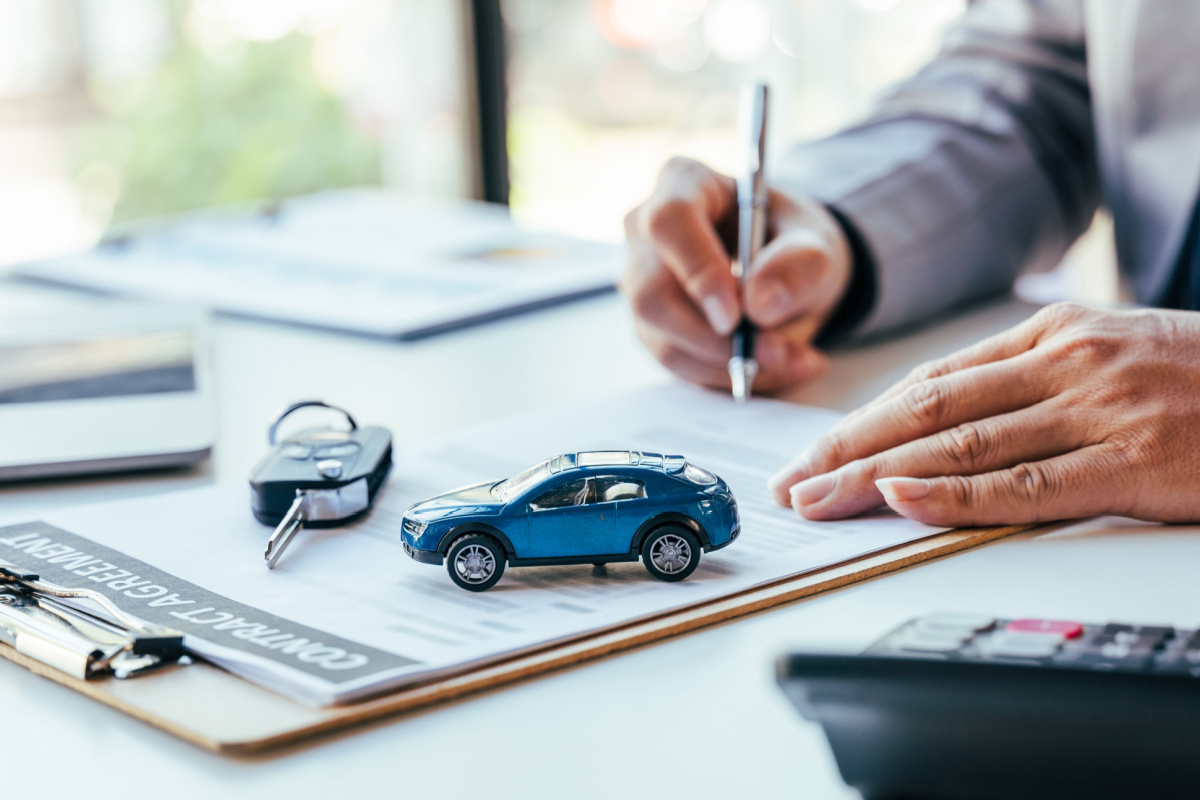
If you’re worried about the cost of insurance, there are a few ways to lower your premiums. First, consider increasing your deductible. This is the amount you’ll have to pay out of pocket before your insurance steps in. The higher your deductible, the lower your premiums will be. Second, shop around and compare car insurance quotes from different insurance providers. You may be able to find a better deal with another company.
Carry Your Proof
Once you have car insurance, make sure to always carry your proof of insurance with you. For example, in most states, you must show proof of insurance if you are pulled over by a police officer or get into an accident. Your proof of insurance will typically be a card that offers the coverage dates, the type of coverage you have, and the name of your insurance company.
Non-Owner Insurance
Another option is non-owner insurance, which provides liability coverage for drivers who do not own a vehicle. This insurance can be an affordable alternative for those who only occasionally borrow, as it covers any damages caused while driving.
Pay-Per-Mile Coverage
Pay-per-mile coverage is another option for drivers who do not drive frequently. This type of insurance charges drivers based on the number of miles driven. It can be an affordable alternative for those who only use their vehicle for short trips or occasional driving.
Join an Existing Policy
Joining an existing policy, such as a parent's or spouse's insurance, can also be cost-effective for some drivers. This is especially true for younger drivers who may benefit from the discounts available through a family policy. However, note that you must live in the same household to join an existing policy.
Look for Discounts
One way to reduce the cost of car insurance is by taking advantage of discounts. For example, many insurers offer discounts for safe driving habits, such as maintaining a clean driving record, completing a defensive driving course, and installing safety features.
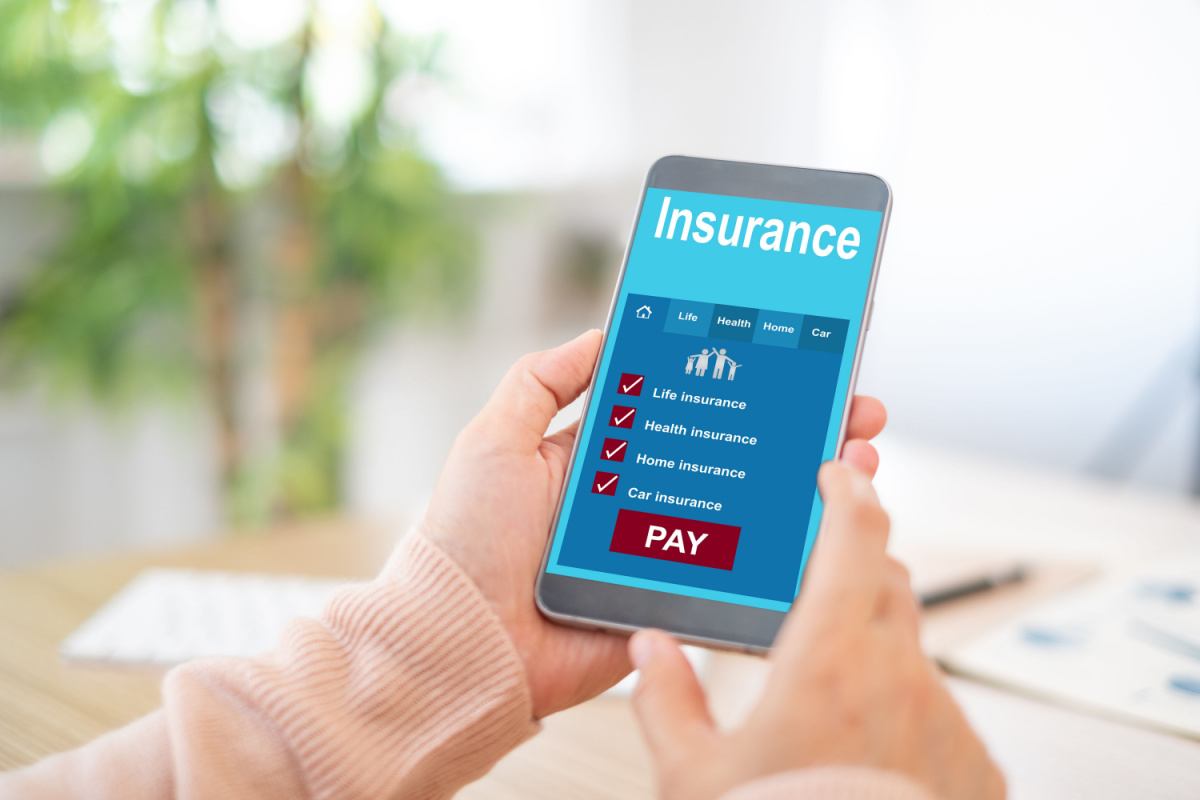
Additionally, some insurance companies offer discounts for bundling multiple insurance policies, such as auto and home insurance, with the same provider.
Bottom Line
Driving without car insurance can have severe consequences and penalties. Not only can it result in financial ruin, but it can also lead to legal troubles, including fines and even jail time in some cases.
Therefore, being a responsible driver and ensuring that one is adequately insured before hitting the road is essential.
Frequently Asked Questions
Below are some of the most frequently asked questions about driving without car insurance:
Is Driving Without Insurance a Felony?
Driving without insurance is typically not a felony offense, but it can still result in severe consequences depending on the state and circumstances. For example, driving without insurance in some states is considered a misdemeanor, while in others, it may be classified as a civil offense. In addition, driving without insurance can result in fines, license suspension or revocation, and jail time in certain situations.
Can You Get Arrested for Driving Without Insurance?
Yes, getting arrested for driving without insurance is possible, mainly if you cause an accident while driving without insurance. In many states, driving without insurance is considered a criminal offense and can result in an arrest and criminal charges. Even if you aren’t arrested, you can still face other consequences, such as fines and license suspension.
What Should I Do If I Don't Have Car Insurance?
If you don't have car insurance, you should obtain coverage as soon as possible. Here are the steps you can take:
- Research insurance companies: Start by researching insurance companies in your area. You can check online or ask for recommendations from friends and family members.
- Get quotes: Once you have identified a few insurance companies, request quotes from each. Be sure to provide accurate information about your driving history and car type, as this can impact your premium.
- Compare policies: Once you have received quotes from several insurance companies, compare the policies to determine the best coverage for your needs and budget. We encourage you to compare quotes, coverage types, discounts, deductibles, and customer service ratings from at least three providers.
- Purchase a policy: Once you have selected an insurance company and policy, purchase the coverage as soon as possible. Many insurance companies offer online enrollment, which can be convenient and fast.
- Provide proof of insurance: After you have purchased a policy, be sure to provide proof of insurance to your state's DMV or other relevant agency. This is typically done by providing a copy of your insurance card or policy.
It's important to note that driving without insurance is illegal in most states and can result in severe consequences, including fines, license suspension, and even criminal charges in some cases. Therefore, getting insurance coverage is essential to protect yourself and others on the road.
What if I Can't Afford Car Insurance?
If you can't afford car insurance, some options may be available, depending on where you live and your income level. Here are a few options to consider:
- Low-Cost Auto Insurance Programs: Some states have low-cost auto insurance programs that offer coverage at a reduced rate for those who meet specific income requirements. You can check with your state's insurance department or speak with an insurance broker to see if this program is available in your area.
- State-Sponsored Programs: Some states have state-sponsored programs that provide car insurance to high-risk drivers who cannot obtain coverage through traditional insurance companies. These programs are typically more expensive than standard car insurance policies, but they can provide a safety net for those who would otherwise be uninsured.
- Raising Your Deductible: If you cannot afford a traditional car insurance policy, you may be able to lower your monthly premiums by raising your deductible. This means you will pay more out of pocket if you are involved in an accident, but your monthly insurance costs will be lower.
- Reduce Your Coverage Limits: Another option to lower your insurance costs is to reduce your coverage limits. For example, you may be able to lower your liability coverage to the state minimum, which will reduce your premiums. However, remember that if you are involved in an accident, you will be responsible for any damages or injuries exceeding your coverage limits.
Can You Drive a New Car Without Insurance?
No, you cannot legally drive a new car without insurance. Most lenders and dealerships require insurance before you can drive a new car off the lot. Additionally, in most states, operating a motor vehicle without minimum liability insurance is illegal.
Can You Drive Someone Else’s Car Without Insurance?
If you are borrowing someone else’s car, you may be covered by their insurance policy. However, this can depend on the policy’s specific terms, and it is essential to check with the owner’s insurance company to confirm coverage.
Sources
- New Hampshire Government. “New Hampshire Insurance Department.” Accessed Aug. 26, 2023.
- GEICO. “SR-22 Insurance - What is it and how does it work?” Accessed Aug. 26, 2023.
- Value Penguin. “Penalties for Driving Without Insurance in California.” Accessed Aug. 26, 2023.
- NerdWallet. “Your Car Insurance Discounts Guide.” Accessed Aug. 26, 2023.



